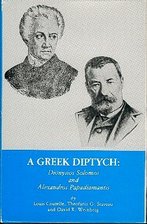[Ομιλία του Οικουμενικού Πατριάρχη Βαρθολομαίου, κατά την ανακήρυξή του σε Επίτιμο Διδάκτορα τού Burgas Free University, 18 May 2010]
Φωτογραφίες: Νίκος Μαγγίνας, Πηγή: Φως Φαναρίου
Prof. Petko Chobanov, President, Esteemed Members of the Academic Council, Learned Professors and Students of the Burgas Free University, Distinguished Guests, Beloved children and people of God:
It is with sincere gratitude that we accept this invaluable honor of being received into the doctoral college of this esteemed and contemporary academic institution, Burgas Free University, with the title of Doctor Honoris Causa. We welcome this privilege as a recognition of our ecclesiastical service in the name of spiritual revival and religious tolerance, which has been a part of the sacred ministry of the Ecumenical Patriarchate, a historical institution spanning seventeen centuries, throughout retaining its See in Constantinople, today Istanbul. In our brief presentation, we would like to address – particularly to the bright young graduates of this year’s class – the crucial issue of religious tolerance in a global world.
Introduction: The Ecumenical Patriarchate and Religious Tolerance
During our tenure as Ecumenical Patriarch, we have addressed issues of peace, racial discrimination, and religious tolerance before diverse audiences. Yet, one of our most rewarding responsibilities has been the blessing of either hosting or sponsoring such international initiatives as:
1. the Peace and Tolerance Conference, which met in Istanbul in 1994 and published “The Bosphorus Declaration,” affirming that “war committed in the name of religion is a war against religion”
2. the Conference on Peaceful Coexistence between Judaism, Christianity, and Islam held in Brussels in 2001, in the aftermath of September 11th, which published “The Brussels Declaration,” emphasizing faith as “a platform for dialogue among civilizations”
3. the special meeting held in Bahrain in 2002 on the 10th anniversary of the commencement of our Christian-Muslim Dialogue, which led to “The Bahrain Declaration,” asserting the need to “remove prejudices and foster respect for other religious traditions”
4. the Conference on Religion, Peace and the Olympic Ideal held in Athens in 2004, which “repudiated all forms of nationalist, racist, religious, social and other discrimination”
5. and the second Peace and Tolerance Conference, held again in Istanbul in 2005, “deploring those who preach violence toward other faiths and ethnic communities”, and “unconditionally condemning the use of force, ethnic cleansing and brutalities.”
These gatherings opened our eyes to the diversity of cultures and religions in our fragmented global world. They also provided greater understanding of the problems of racism and fundamentalism, while assisting us in emphasizing religious tolerance over religious absolutism.
Religious Tolerance and Religious Absolutism
The most delicate and at the same time awkward issue with which we must deal in relation to religious tolerance, is fundamentalism or absolutism. It is well known that every religion claims to hold and uphold the absolute truth, concerning God and the world. Furthermore, it is also well known that God is the absolute being, the one to whom all pure attributes belong, and from whom all evil attributes are absent. This is common ground among all three monotheistic religions of Judaism, Christianity and Islam, and beyond.
Moreover, as all monotheistic religions confess, God is one – although Christians prefer to refer to the One God as Trinity. This means that all believers of the monotheistic religions have at least some perception of the one, immutable, and perfect God. At the same time, however, all monotheistic religions confess that their understanding of the God is limited, not only because of the absolute nature of God but also because of the finite nature of humanity. The confession of this fundamental truth about God and ourselves incites the Socratic admission with regard to ignorance: the one thing that we do know, is that we do not know anything!
In other words, when we speak of absolute values, we are dealing with truths beyond our intellectual capabilities and experience. As a direct consequence, then, of this humble recognition and faith in the One God, whom we worship, we are obligated to be tolerant of the views of others. Ultimately, we are united in silence before God’s transcendent being. For even the most comprehensive definition of God can never appropriate or approach the fullness of divine nature, which always remains incomprehensible. In Orthodox theology, this concept is known as “apophatic theology.” Yet, how does this theology translate into personal ethics and political practice? In our humble opinion, it should impose on all of us an attitude of “hospitality.”
An Attitude of “Hospitality”
With regard to religious tolerance, the world’s monotheistic religions owe it to their common heritage to imitate their forefather, the Patriarch Abraham. Sitting under the shade of the oak trees at Mamre, Abraham received an unexpected visit from three strangers (recorded in Gen. 18 and Heb. 13), whom he did not consider as a danger or threat. Instead, he spontaneously shared with them his friendship and food, extending such generous hospitality that, in the Orthodox tradition, this scene has been interpreted as symbolical of the Holy Trinity. In fact, the only authentic image of the Holy Trinity, of God as communion, in the Orthodox Church is the depiction of this scene of a rural encounter in ancient Palestine.
Moreover, in the Orthodox icon of “Abraham’s Hospitality,” iconographers traditionally depict the guests on three sides, allowing an open space on the fourth side of the table. So, the icon serves as an open invitation to each of us. The question addressed to each of us – and in particular the younger generation, such as the graduates of this institution – is: Will we sit at the table with strangers? Will we surrender our prejudice to take our place at the table with others in the global world?
The icon of Abraham’s hospitality is a powerful symbol of the presence of God among us, when we welcome others without inhibition or suspicion. It is an icon of religious tolerance and religious hospitality. This work of reconciliation can only be initiated and sustained by genuine tolerance, which reflects God’s own for the world. And it is not only religions, which are called to this task. Every organization of social, academic, and political character, should be dedicated to the pursuit of justice and advancing the welfare of society. That has consistently been a fundamental principle of the ministry of the Ecumenical Patriarchate.
Conclusion: The Ministry of the Ecumenical Patriarchate
Of course, fundamentalist or absolutist tendencies have persisted and continue to exist in our world, indeed even among Orthodox Christians. In perhaps the most recent institutional expression against racism, the 4th Preconciliar Panorthodox Conference, held in Geneva in 1976, declared that the Orthodox Church should contribute to upholding peace, freedom, reconciliation, and love throughout the world, in order to dispel racial discrimination. Organized by the Ecumenical Patriarchate, this Panorthodox Conference sought to replace racism with inter-religious cooperation, in order to abolish religious fanaticism of every kind.
At the Ecumenical Patriarchate, we do not fear strangers; we cherish them. We have made it our daily practice for centuries to apply the apostolic words “Do not forget to entertain strangers.” (Heb. 13.2) We insist that all humans are equal, both before the law of God and before secular law, a view espoused by all sensible and sensitive people, regardless of religious conviction. At every given opportunity, then, we emphasize that the religious rights of minorities must be duly respected, including - and especially- their right to worship and education. After all, the very term “Ecumenical,” in the title of our Church, seeks precisely to denote the acceptance of all people dwelling within the oikoumene, as being fully equal and equally welcome. That is what we claim to be; that is what we preach to live; and that is how we strive to lead.


































